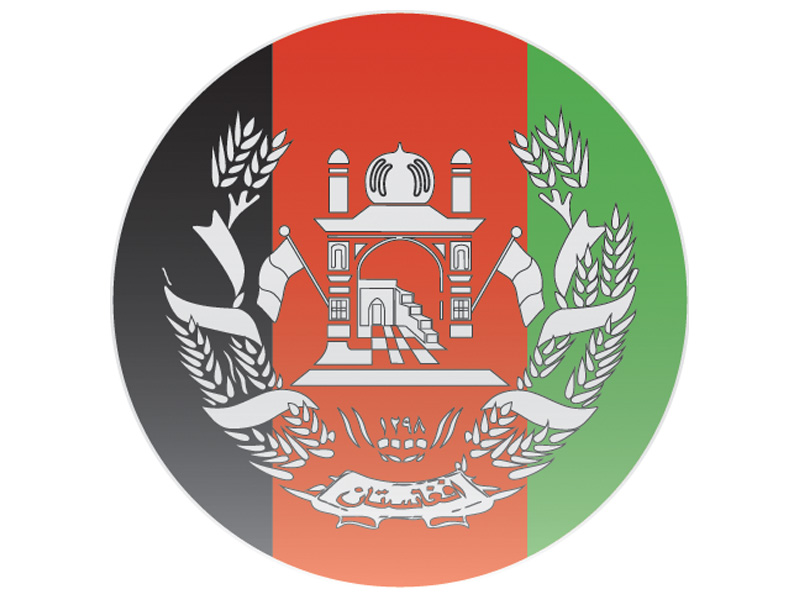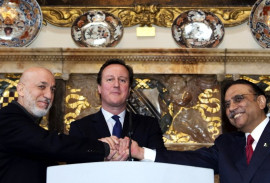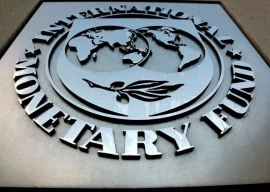
Pakistan recently received a senior anti-Taliban Afghan Hazara leader as a state guest in its quest to win over the sympathy of non-Pashtun communities in the neighbouring state.
Head of Hizb-e-Wahadat Mardam-e-Afghan Party Haji Mohammad Mohaqiq led an eight-member delegation of the Hazara community which met Prime Minister Raja Pervaiz Ashraf and Foreign Minister Hina Rabbani Khar this week.
The move is meant to appease ethnic communities critical of Pakistan’s role in establishing peace in the region and what many call Islamabad’s backing for the Afghan Taliban.
A statement issued by the Prime Minister House following the meeting expressed “Pakistan’s desire to have relations with all ethnic and political groups in Afghanistan.”
Similarly, a statement issued by the foreign ministry quoted Hina Rabbani Khar saying: “Pakistan wants to have close relations with all ethnic and political groups of Afghanistan including Hizb-e-Wahdat Mardam-e-Afghan Party.”
This was Mohaqiq’s second visit to Pakistan in less than two years. It reflects Pakistan’s move to boost interaction with non-Pashtun ethnic groups at a time when most foreign combat troops are set to withdraw from Afghanistan by the end of 2014 and as Islamabad struggles for more influence in the war-torn country.

A ministry official recently confided to The Express Tribune that Pakistan has also extended invitations to other ethnic leaders as part of its policy to “create better understanding with all ethnic groups” in the neighbouring country.
In line with this policy, Pakistan Ambassador to Kabul Mohammad Sadiq visited the grave of Tajik leader Ahmad Shah Masood in July 2009. This was shortly after he assumed his new diplomatic role in a rare move that was considered a major trust building measure by Pakistan, which has always been accused by the Northern Alliance of supporting the Taliban.
In their official visits to Afghanistan last year, both Ashraf and Khar met Dr Abdullah Abdullah, the head of the main opposition group, National Coalition of Afghanistan. They also met Tajik leader Ahmad Wali Masood, former speaker and member of National Coalition of Afghanistan Yunus Qanooni, Uzbek leader and deputy head of Junbish-e-Milli Party Faizullah Zaki, and Hazara leader and Vice-President Karim Khalili.
Pakistan assured the leaders that Islamabad is ready to do whatever was in its capacity to facilitate peace in Afghanistan, and stressed that opposition groups can play an important role in achieving stability, progress and development.
Islamabad is now also calling for intra-Afghan talks consisting of all groups in a bid to come up with a political solution for the long-standing conflict.
However, Afghan analysts are suspicious about Pakistan’s interest in specific ethnic or political groups.
A researcher at Afghanistan Analysts Network (AAN), Gran Hiwad says it is not “proper and diplomatic behaviour for Pakistan to interact with specific ethnic and political Afghan leaders.”
Hiwad told The Express Tribune via phone that Afghans have suffered a lot due to ethnic conflicts between 1992 and 2001, the period ruled by mujhaideen groups and the Taliban. “Neighbouring countries were blamed for their role in that conflict.”
He urged Pakistan to encourage religious scholars to sit with Afghan clerics and discuss how to adopt a joint approach against the killing of Muslims.
A former Taliban leader is also critical about what he called “Pakistan’s quest for the policy of strategic depth in Afghanistan.” He added disputes on a few core issues between Kabul and Islamabad were obstacles in the peace process.
“Seeking strategic depth completely in contradiction with ground facts could also be one of those obstructions,” said Mullah Agha Jan Mutasim, former chairman of the Taliban political commission.
Pakistan faces a huge trust deficit and will have to adopt a clear policy to win the hearts of war-weary Afghans, many of whom hold Pakistan responsible for years of suffering.
Published in The Express Tribune, February 23rd, 2013.
COMMENTS (13)
Comments are moderated and generally will be posted if they are on-topic and not abusive.
For more information, please see our Comments FAQ






























1714370039-0/ojwilson-(1)1714370039-0-270x192.webp)


-(1)1714378140-0/AliAminMaryam-(4)-(1)1714378140-0-270x192.webp)
-(1)1714458896-0/ASP-(2)-(1)1714458896-0-270x192.webp)






@pakistani342:
I'm Pakistani and this criticism has been made by everyone. Don't be defensive and in denial. The issue of 3 mil refugee Afghans out of 180 mil Pakistanis, blurted out of prejudice and ignoring that now many contribute to the Pak economy, shouldn't be the basis of such state conduct. However, I would like to send some Afghans the other way, starting with the Haqqani network or Quetta Shura or other Afghan Talibans our state seems to favour, over our own Pakistanis such as the Turi tribe.
While we need strong border control, there's large Pashtun and non-Pashutn populations that travel on both sides, so hope you're not suggesting to inhumanely place landmines as suggested before for your reactionary isolationism. There is one thing to have influence and help, it is another thing to support militant terrorists. And yes, there are countless Afghans and Pakistanis who've been crying a river a blood as victims of terrorism due to such policies to which you seem insensitive to.
@bigsaf:
Why cry me a river!
Why don't you take back the 3+ million Afghans who live in Pakistan and consume its resources -- then we can build a great wall between our two countries and forget the other exists.
@Pathan:
It's a myth used by Afghans who have destroyed their own country to bash Pakistan.
@Pathan:
You're wrong and in denial. Many people have written detailed articles and books on it, with the Pak military establishment even acknowledging it. This Wikipedia entry gives a decent overall account (if you don't trust the entry, you can always check the sources).
Strategic depth: in reference to Pakistan
Its a policy of Pak's military interests in Afghanistan to have influence, or meddle, over Afghans' affairs and deny India (obsessively considered an enemy) a presence. Unfortunately in the past this has included undermining sitting Afghan govts (seen as pro-India and by default then anti-Pakistan) by supporting like minded ideological militant terrorist groups (such as the Pashtun Deoband Taliban, seen as pro-Pakistan and anti-India). The policy is considered dangerous, selfish, derranged and immoral, having an air of imperial or colonial hegemonic arrogance while displaying geographic ideological religious nationalist paranoia and insecurity.
@sajjad ali khan: "@pathan Strategic depth means punjabi controle of pashtun land." After, they extended "strategic depth" to Kashmir.
@pathan Strategic depth means punjabi controle of pashtun land. As a pathan this should be enough explanation to you.
@Pathan: Strategic Depth means path of destruction for Pakistan. Go figure.
Can anyone out of critics of "Strategic Depth" elaborate that what he or she understands by this term? ( no one will be able to do it, coz no one has an iota of idea what it means)
@stevenson: Your argument is exactly what our 'strategic depth' gurus have been thinking for decades. It has led Pakistan to nowhere and will not do good in future as well. By the way we should acknowledge that all 'strageic assests' of Pakistan are in fact Afghan warlords sitting 'illegaly' in FATA esp. in North Waziristan.
@stevenson: Well sadly you got your facts wrong , it is Pakistam who has allowed the establishement of Taliban and Queeta shura , continue to support and provide safe haven to terrorists . Afghanistan is a sovereign country and will alway be , entitle to form relationship with any country they wish and in this case India , strategically to counter Pakistan unjustified and ill interference.
@Ghani: The problem is that Afghanistan has to stop letting its soil being used as a staging ground for criminals to enter Pakistan and commit crimes. For decades, Afghanistan has been an Indian puppet state despite Pakistan working to free that land from Soviet rule. The best thing is to build a big barrier across the border between Pakistan and Afghanistan to closely regulate the movement of people. At the same time illegal Afghani refugees should be sent back to Afghanistan.
Ah, the old "divide and conquer" technique.
Pakistan should stop interfering in Afghanistan and let Afghans decide their own future. Our patriotic army should better focus on our problems and secure our borders and take action against those illegaly present in our area. This 'strategic depth' is a failed concept and is one of the factors that has led Pakistan into current crises. It will take our country many democraries before the civilian government eventually takes control of the failed foreign policy.